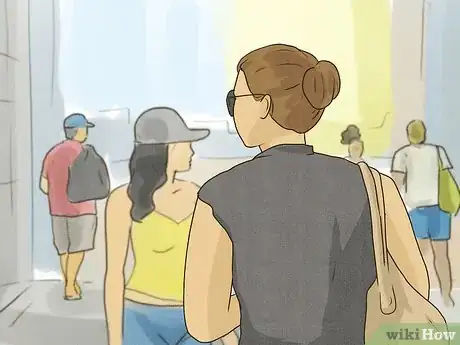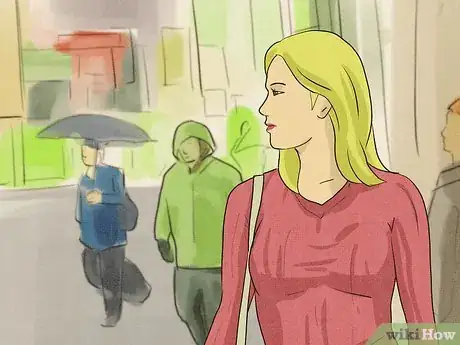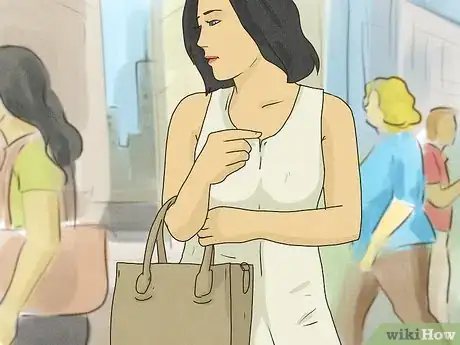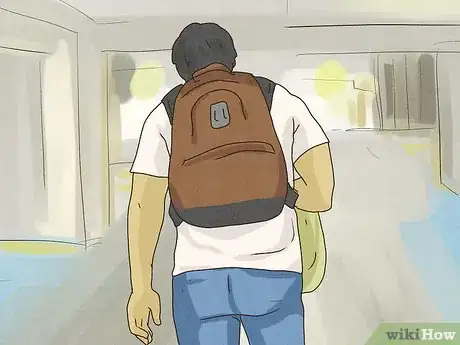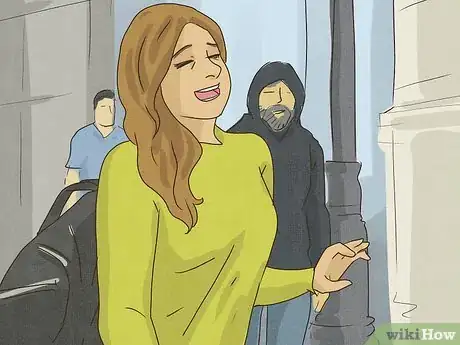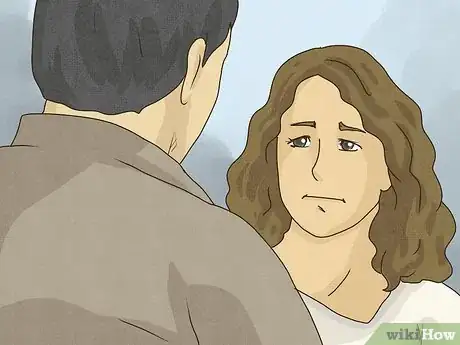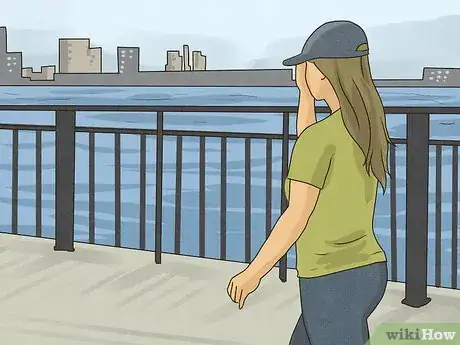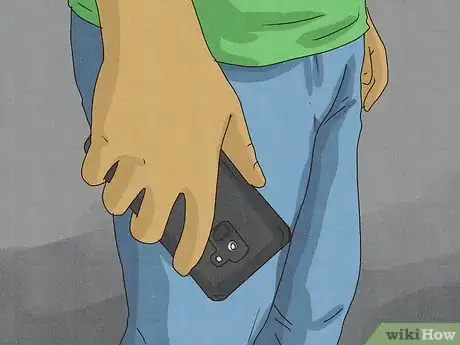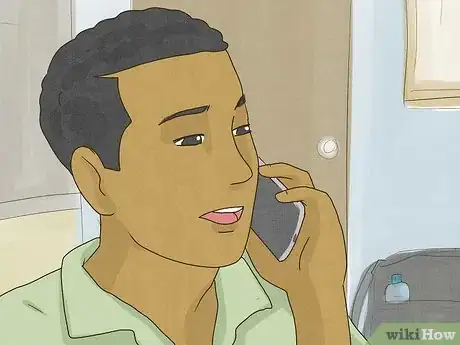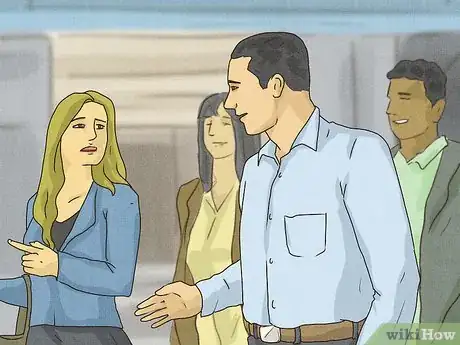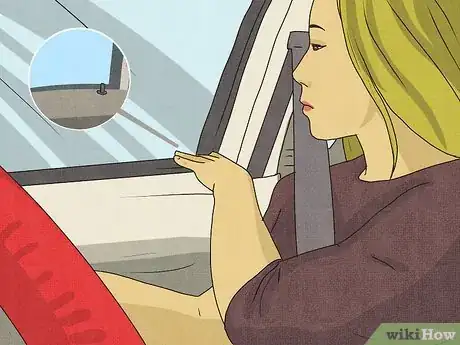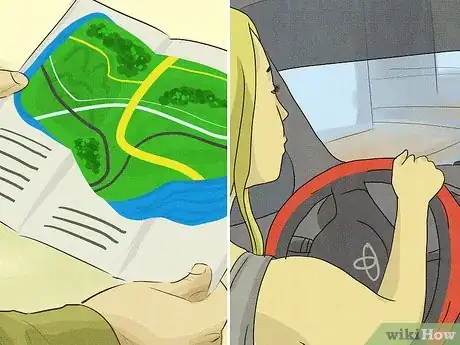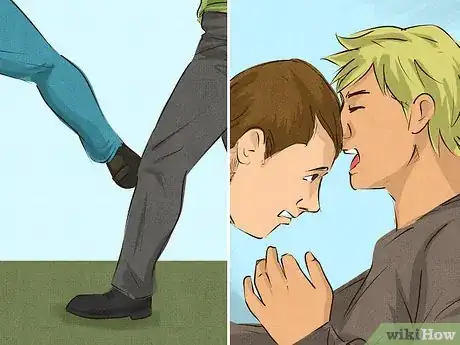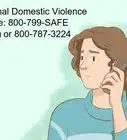This article was co-authored by Saul Jaeger, MS and by wikiHow staff writer, Janice Tieperman. Saul Jaeger is a Police Officer and Captain of the Mountain View, California Police Department (MVPD). Saul has over 17 years of experience as a patrol officer, field training officer, traffic officer, detective, hostage negotiator, and as the traffic unit’s sergeant and Public Information Officer for the MVPD. At the MVPD, in addition to commanding the Field Operations Division, Saul has also led the Communications Center (dispatch) and the Crisis Negotiation Team. He earned an MS in Emergency Services Management from the California State University, Long Beach in 2008 and a BS in Administration of Justice from the University of Phoenix in 2006. He also earned a Corporate Innovation LEAD Certificate from the Stanford University Graduate School of Business in 2018.
There are 12 references cited in this article, which can be found at the bottom of the page.
This article has been viewed 101,275 times.
While the news makes it seem like the world is a pretty scary place, you can take steps to stay safe and comfortable while you're out and about. You shouldn't have to feel afraid when you're walking home alone or going to a new place. To give you some extra peace of mind, we’ve put together a quick, handy list of tips and tricks to help you avoid any risky, dangerous situations.
Steps
Stay in well-populated areas.
-
Walk on well-lit streets, close to other people. Don’t take any shortcuts through isolated spots. If you run into danger, you can easily call for help from a bystander.[1] X Research source No dark, secluded shortcut is worth risking your personal safety![2] X Research source
- If you have to walk through a dark, isolated area to get home, download a safety app to your phone. Apps like TripWhistle, Chirpey, Noonlight, and RedZone help you flag risky areas, and also get in touch with local authorities.[3] X Research source
Be alert and aware.
-
Tune into what’s going on around you.[4] X Research source Try to make eye contact with the people nearby, so thieves won’t be as likely to target you. Also, don’t walk and text; instead, focus on your surroundings, so you won’t be taken by surprise.[5] X Research source
- For example, you might watch for someone following you, or someone lurking suspiciously along the side of the street.
- If you’re listening to music on the go, only listen with 1 earbud. This way, you can still hear what’s going around you.[6] X Research source
Carry your bag in front of you.
-
Don’t carry valuables in your back pocket. As you walk, cover the zipper or fastener of your bag with your hand, so criminals don’t have easy access. As an extra precaution, only grab your wallet or phone if you absolutely need it.[7] X Research source
Don’t carry heavy objects.
-
You might look vulnerable if you’re struggling with something heavy. Instead, only carry lightweight bags or packages when you’re by yourself.[8] X Research source
- If you have to carry or move something heavy, ask a friend or loved one for help. This will help you look a lot less vulnerable.
Act erratic if someone harasses you.
-
Dangerous people won’t want the extra attention. If someone suspicious is talking to you or approaching you, start laughing loudly, drooling, or talking to yourself. Any wild, unpredictable behavior will draw attention, which is exactly what predators and criminals don’t want.[9] X Research source
- For example, if a stranger is giving you unwanted advances, yell out to draw attention to yourself.
Listen to your gut.
-
Your instincts can raise the alarm before anything dangerous happens. Pay attention to anyone acting suspicious, or anyone who makes you feel uncomfortable. If you have a bad feeling about a situation, don’t hesitate to turn and run the other way.[10] X Trustworthy Source US National Park Service Agency responsible for the maintenance and promotion of national parks and monuments Go to source
- If a stranger seems overly friendly and curious, you might excuse yourself instead of continuing the conversation.
- If you’re walking by yourself and notice someone loitering or acting suspiciously, create as much distance as you can between yourself and the stranger.
Move confidently.
-
Always act like you have a place to be. Walk confidently and assertively, moving your feet in a smooth, fluid motion as you go. Also, stand with alert, upright posture, and bend your arms slightly as you move. Follow the speed of the crowds around you, so you don’t stick out to potential criminals.[11] X Research source
- If you can, avoid taking super long steps. Criminals are more likely to target you if your walking pattern is strange.
Carry your cell phone with you.
-
A cell phone can get you out of a potentially dangerous situation. Before heading out by yourself, double-check that you have your cell phone handy. Try to charge your phone frequently, so it’s juiced up when you need it.[12] X Research source
- Keep your emergency contacts saved in your phone, as well as the number for a local taxi company.
Create an escape plan.
-
Exit routes are a great way to plan ahead. Scout out your surroundings whenever you’re in a new, unfamiliar place. Brainstorm quick, easy ways you can escape the area if you’re ever in danger. Be on the lookout for emergency phones and helpful bystanders, too—a helping hand or quick phone call might come in handy.[13] X Research source
- You might look for a fire escape, or a stairwell that offers an easy exit.
Tell someone where you’re going.
-
A concerned friend or loved one will have your back if something goes wrong. Give someone the low-down on where you’re going, and what time you expect to be back. If you’re embarking on a longer trip, let a loved one know when you plan on checking in. If anything should go wrong, your friend can alert authorities right away.[14] X Trustworthy Source US National Park Service Agency responsible for the maintenance and promotion of national parks and monuments Go to source
- You could say, “I’m going on a day-long hike at the quarry, and I won’t be back until around 8 PM. I’ll check-in with you around noon.”
- You might also say, “I’m going camping over the weekend, but I’ll do my best to check in once a day. If you don’t hear from me for some reason, call the local park ranger.”
Hang out with people you trust.
-
Don’t spend too much time with people you don’t know. It can be fun to meet new people, but you should never sacrifice your personal safety for a fun outing. Only go out and about with close friends who you know will have your back.[15] X Research source
- For example, if an acquaintance you meet at a party invites you to hang out at their place, say no.
Be careful if you drink in public.
-
Never take a drink from a stranger or leave your current drink unattended. If you have to use the restroom or leave the area, order a new drink once you get back. If you’re at a party, don’t grab a drink from a communal cooler or punch bowl.[16] X Research source
- If someone offers to buy you a drink, supervise them and the bartender while the drink gets prepared.[17] X Research source
Make up an excuse if you’re being pressured.
-
Always put your own comfort and safety above anyone else’s. If someone is pressuring you into something risky or dangerous, come up with a quick excuse to get out of it. Don’t worry about offending the other person—your personal safety always comes first![18] X Research source
- You could say, “My mom just had surgery last week, and I really need to get home and check on her” or “I promised my roommate I’d be back by 9 PM, and they’ll be really worried if I’m out too late.”
- You might also say, “I appreciate the offer, but I’m running late for an important meeting” or “I have a lot of schoolwork to finish up before my class tomorrow.”
Lock your car doors.
-
Don’t let criminals have easy access to your vehicle. Get your keys out and ready as you approach your car, so you aren’t taken by surprise while you search through your bag. In general, try to get in the habit of locking your car doors as soon as you get in or out of your vehicle.[19] X Research source
Plan a safe driving route home.
-
Choose a route that’s close to a hospital or police station. Knowing your options can give you some peace of mind as you drive home, especially if you’re worried about being followed.[20] X Research source
- On your way home from work, you might take a route that passes the hospital.
Use self-defense.
-
Kick or punch someone in a sensitive area. If you’re being threatened or attacked, hit the attacker in their groin, knees, nose, ears, eyes, throat, or temples. This might help incapacitate your attacker, and give you an opening to escape.[21] X Research source
- If you’d like to go the extra mile, sign up for self-defense classes in your local community. Check online to see what courses are offered near you.
Warnings
- Never accept rides from strangers. Always ride with a friend, loved one, or reputable taxi or rideshare service.[24] X Trustworthy Source US National Park Service Agency responsible for the maintenance and promotion of national parks and monuments Go to source⧼thumbs_response⧽
You Might Also Like

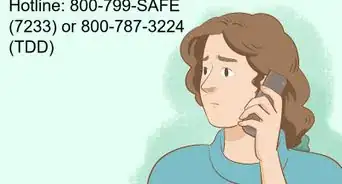



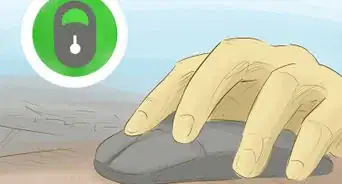
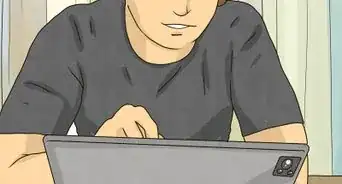 How Does a Narcissist Respond to No Contact? 11 Potential Reactions
How Does a Narcissist Respond to No Contact? 11 Potential Reactions
 10+ Signs That a Guy Is a Creeper
10+ Signs That a Guy Is a Creeper
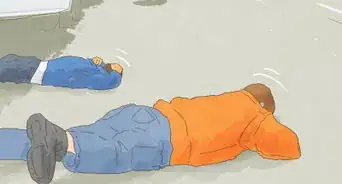
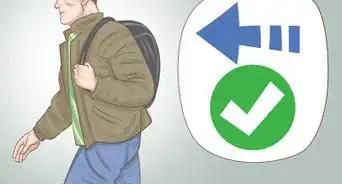
-Step-14-Version-2.webp)
-Step-10.webp)

References
- ↑ https://www.iffoundation.org.au/how-to-avoid-dangerous-situations/
- ↑ https://publicsafety.columbia.edu/content/crime-prevention-tips
- ↑ https://www.nytimes.com/2019/03/26/travel/safety-tips-female-solo-travel.html
- ↑ https://hawaii.hawaii.edu/sites/default/files/assets/security/docs/sexualassault_prevention.pdf
- ↑ https://publicsafety.columbia.edu/content/crime-prevention-tips
- ↑ https://www.iffoundation.org.au/how-to-avoid-dangerous-situations/
- ↑ https://www.nidirect.gov.uk/articles/protecting-your-belongings
- ↑ https://hawaii.hawaii.edu/sites/default/files/assets/security/docs/sexualassault_prevention.pdf
- ↑ https://www.nytimes.com/2019/03/26/travel/safety-tips-female-solo-travel.html
- ↑ https://www.nps.gov/appa/planyourvisit/safety.htm
- ↑ https://www.nbcnews.com/better/health/seven-second-rule-how-avoid-being-seen-easy-target-ncna789226
- ↑ https://www.iffoundation.org.au/how-to-avoid-dangerous-situations/
- ↑ https://gato-docs.its.txstate.edu/jcr:b8ce70db-27a4-45d2-b181-e2c0fc8e589e/RAINNRisk%20Reduction.pdf
- ↑ https://www.nps.gov/appa/planyourvisit/safety.htm
- ↑ https://www.iffoundation.org.au/how-to-avoid-dangerous-situations/
- ↑ https://gato-docs.its.txstate.edu/jcr:b8ce70db-27a4-45d2-b181-e2c0fc8e589e/RAINNRisk%20Reduction.pdf
- ↑ https://hsu.edu/pages/about/administration/title-ix/risk-reduction-tips/
- ↑ https://gato-docs.its.txstate.edu/jcr:b8ce70db-27a4-45d2-b181-e2c0fc8e589e/RAINNRisk%20Reduction.pdf
- ↑ https://gato-docs.its.txstate.edu/jcr:b8ce70db-27a4-45d2-b181-e2c0fc8e589e/RAINNRisk%20Reduction.pdf
- ↑ https://gato-docs.its.txstate.edu/jcr:b8ce70db-27a4-45d2-b181-e2c0fc8e589e/RAINNRisk%20Reduction.pdf
- ↑ https://www.nib.com.au/the-checkup/community/10-simple-self-defence-tips-that-could-save-your-life
- ↑ Saul Jaeger, MS. Police Captain, Mountain View Police Department. Expert Interview. 21 February 2020.
- ↑ https://globaled.duke.edu/student-experience/avoid-unsafe-situations
- ↑ https://www.nps.gov/appa/planyourvisit/safety.htm
About This Article

